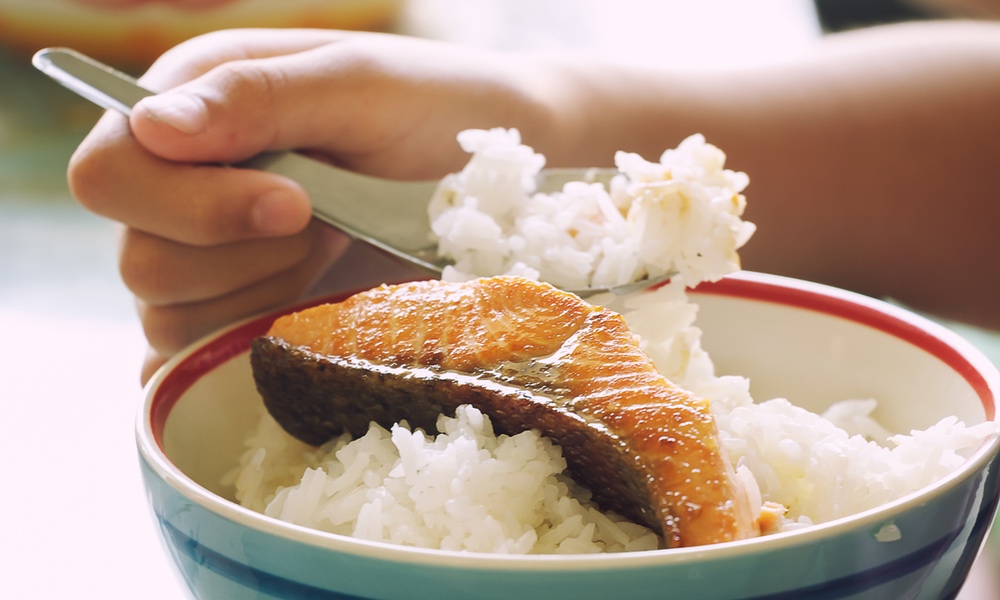Fish isn’t often thought of as something to feed babies, but it should be a food that is introduced around the time of their first birthday for several reasons. Babies who begin eating fish early in life are less likely to develop eczema, wheezing and asthma, a new study reports.
Other studies have found that babies who eat fish sleep better and tend to have higher IQs than those who don't. Fish is also on the list of potential allergens for children, but introducing it early could prevent such allergies from occurring.
Researchers at St. Olva's Hospital and the Norwegian University of Science and Technology used data gathered in the Prevention of Allergy among Children survey. More than 4,000 families contributed information so that the relationship between the mother’s or child’s fish intake and the child’s development of eczema, asthma and hay fever could be studied.Introducing the taste of fish early makes it more likely children will be accepting of it.
It wasn’t just fatty fish that was associated with fewer occurrences of these conditions, according to Melanie Rae Simpson, one of the study authors. Any type of fish helped.
Other factors, such as socioeconomic status, that could be involved in children’s development of eczema, wheezing and asthma were also considered. It is possible that children whose parents have higher levels of education or income have health advantages due to other influential factors, not just fish. Or they may just have more fish in their diets. The researchers did what they could to account for these factors when determining the study’s results.
Feeding fish to children by their first birthday seems to have more significant health benefits than how much fish the mother eats or cod liver oil she consumes during pregnancy or breastfeeding, or even how much fish the child has eaten by the age of two, the study found.
Introducing the taste of fish early makes it more likely children will be accepting of it. Babies as young as 10 months old can be given finely chopped fish. Pairing fish with other foods, such as sweet potatoes or oranges, may also make introducing them easier. Babies prefer mild tasting fish. Offer catfish, flounder, trout, haddock or tilapia. Some kids may like sushi.There was a 28 to 40 percent reduction in eczema, wheezing and asthma at age six among children who ate fish or were given cod liver oil starting around one year of age.
It is important to note that fish with bones can be a choking hazard for young children, so carefully inspect fish that is served to little ones to be sure there are no bones.
The study was published in Nutrients.





